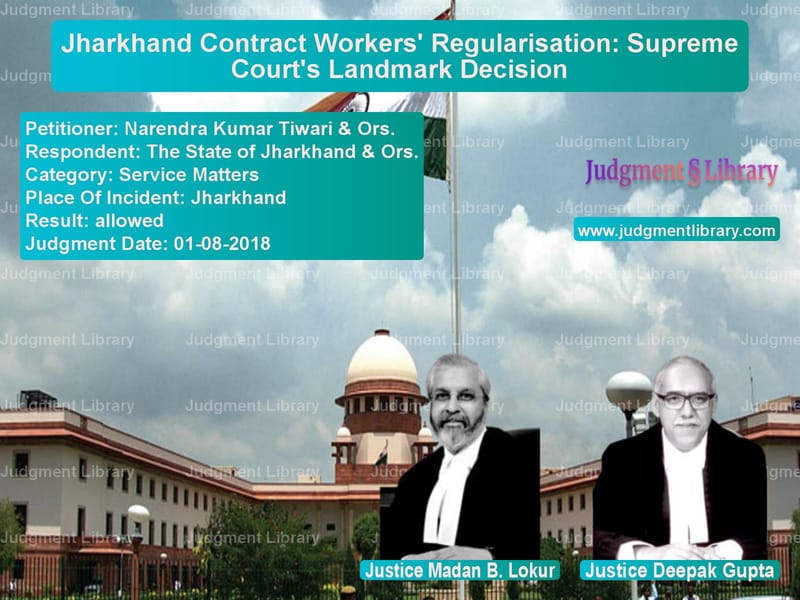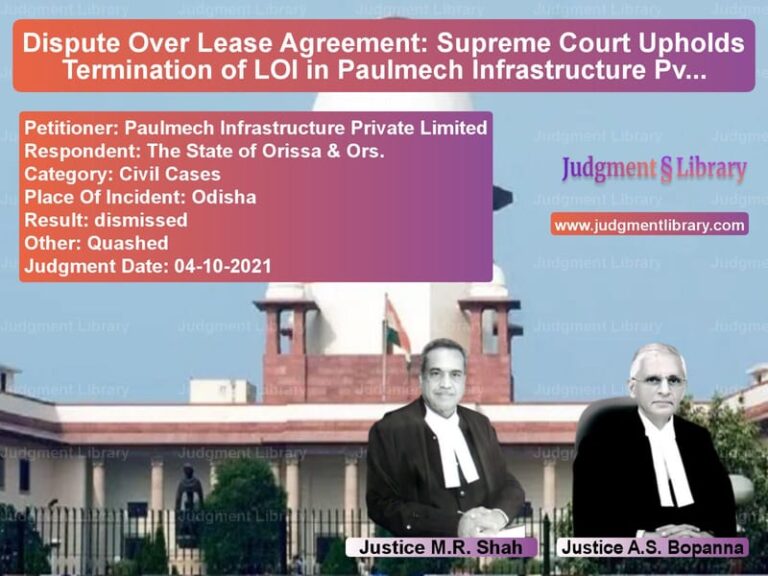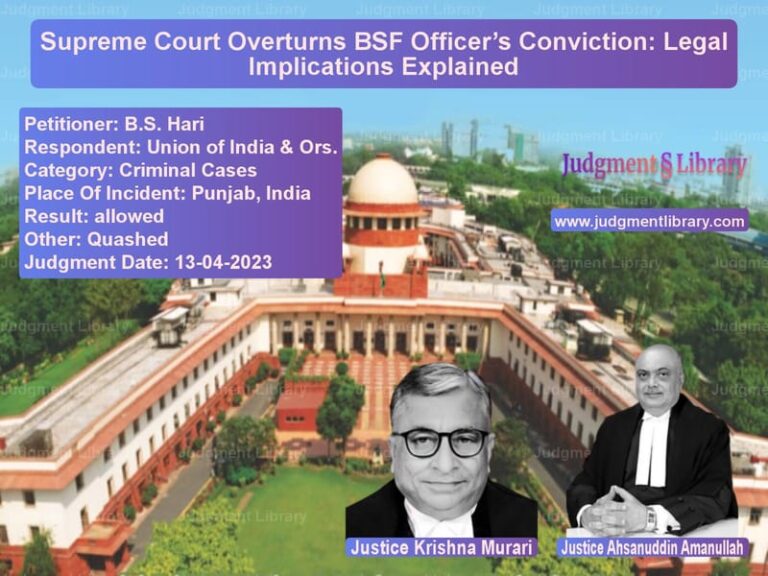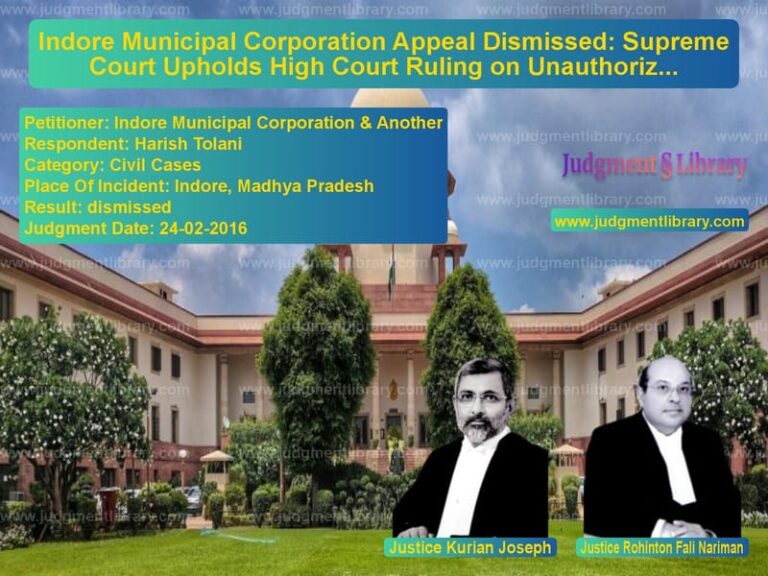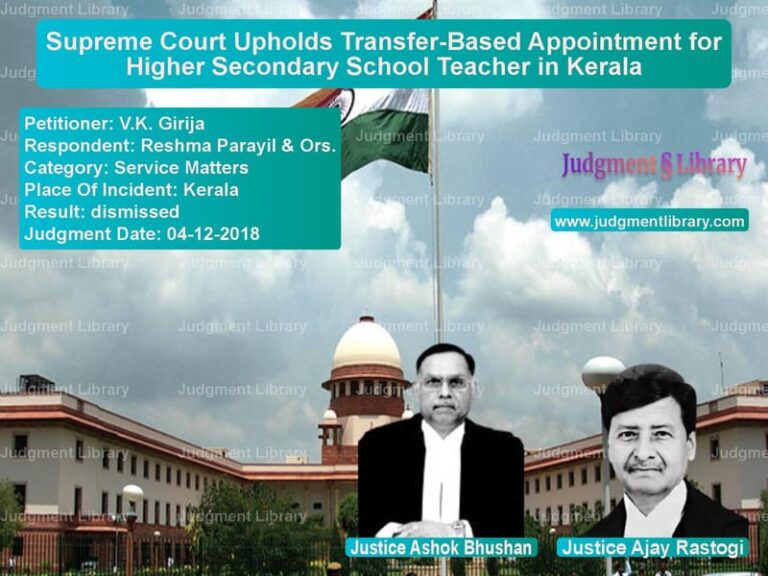Jharkhand Contract Workers’ Regularisation: Supreme Court’s Landmark Decision
The case of Narendra Kumar Tiwari & Ors. vs. The State of Jharkhand & Ors. dealt with the crucial issue of regularisation of daily wage and contract workers who had served the State of Jharkhand for over a decade. The appellants, irregularly appointed employees, sought regularisation under the Jharkhand Sarkar ke Adhinasth Aniyamit Rup se Niyukt Ewam Karyarat Karmiyo ki Sewa Niyamitikaran Niyamawali, 2015 (Regularisation Rules). However, the State denied them this benefit, arguing that they had not completed ten years of service by the cut-off date of 10th April 2006, as required by the precedent set by the Constitution Bench in Secretary, State of Karnataka vs. Umadevi (3).
The High Court of Jharkhand upheld the State’s interpretation, ruling that since the petitioners had not completed ten years of service on the specified date, they were ineligible for regularisation. However, the Supreme Court adopted a different view, emphasizing the necessity of interpreting the Regularisation Rules in line with the intent behind the Umadevi (3) judgment.
Background of the Case
The appellants in this case were employees who had been working in various departments of the Jharkhand government for extended periods without being granted permanent status. The core issue revolved around the arbitrary nature of employment contracts and the lack of job security for these workers.
With the advent of the Regularisation Rules in 2015, these employees hoped for formal recognition. However, the strict application of the cut-off date of 10th April 2006 meant that they were not eligible for regularisation despite their long service.
Petitioners’ Arguments
The petitioners, through their counsel, presented the following arguments:
- The State of Jharkhand was formed on 15th November 2000, making it impossible for any employee to have completed ten years of service by 10th April 2006.
- The Regularisation Rules, if applied strictly, would render the entire legislative exercise meaningless as no employee could meet the eligibility criteria.
- The State had issued resolutions in July 2009 permitting the regularisation of certain employees who had not completed ten years of service, thereby discriminating against the petitioners unfairly.
- The exclusion of the petitioners from regularisation was arbitrary, particularly given that their counterparts in other states with similar tenure had been granted regularisation.
- Depriving them of permanent employment despite long service violated their constitutional rights under Articles 14 and 16 of the Constitution of India.
Respondents’ Arguments
The State of Jharkhand defended its decision, arguing that:
- The Regularisation Rules were formulated in compliance with the Supreme Court’s judgment in Umadevi (3), which mandated that only those who had completed ten years of service by 10th April 2006 were eligible.
- Relaxing the cut-off date would amount to a violation of settled legal principles and could open the floodgates for further irregular appointments.
- The intent behind Umadevi (3) was to prevent the state from resorting to ad hoc employment, ensuring that all future appointments followed due process.
- Permitting regularisation beyond the cut-off date would encourage continued irregular appointments and put an undue financial burden on the state.
Supreme Court’s Analysis
The Supreme Court, while analyzing the case, made the following observations:
- “The decision in Umadevi (3) was intended to put an end to the practice of appointing daily wage workers and continuing them indefinitely.”
- It was evident that the State of Jharkhand had continued making irregular appointments even after Umadevi (3), defeating the purpose of the judgment.
- “If a strict and literal interpretation, forgetting the spirit of the decision in Umadevi (3), is taken, then no irregularly appointed employee of Jharkhand could ever be regularised.”
- The exclusion of the petitioners was unfair and amounted to exploitation, as their services were continuously used without granting them any employment security.
- The State’s argument that financial burden prevented regularisation was unacceptable when viewed against the backdrop of continuous reliance on contractual employees.
Supreme Court’s Judgment
The Supreme Court ruled in favor of the petitioners, issuing the following directives:
- The State of Jharkhand must regularise employees who had completed ten years of service by the date of promulgation of the Regularisation Rules, unless there was a valid reason such as misconduct.
- The State must take a decision within four months regarding the regularisation of eligible employees.
- The practice of making irregular appointments must be discontinued to prevent similar disputes in the future.
Impact of the Judgment
This judgment set a critical precedent in employment law, particularly in cases involving contractual workers. The ruling emphasized the necessity of fair employment practices and ensured that employees who had served for long durations were not arbitrarily excluded from regularisation.
The decision also reinforced the idea that legal interpretations must be practical rather than rigid, allowing for justice to prevail over technicalities. The ruling discouraged the practice of keeping employees in limbo under the guise of temporary employment while benefiting from their long service.
Conclusion
The case of Narendra Kumar Tiwari & Ors. vs. The State of Jharkhand & Ors. highlights the ongoing struggle of daily wage and contractual workers seeking job security. The Supreme Court’s verdict ensures that deserving employees receive their due rights, and it serves as a cautionary tale for state governments that continue to rely on ad hoc employment practices.
The ruling marks a significant step towards equitable labor policies, reaffirming that the government must honor its commitment to fair employment while adhering to constitutional principles.
Petitioner Name: Narendra Kumar Tiwari & Ors..Respondent Name: The State of Jharkhand & Ors..Judgment By: Justice Madan B. Lokur, Justice Deepak Gupta.Place Of Incident: Jharkhand.Judgment Date: 01-08-2018.
Don’t miss out on the full details! Download the complete judgment in PDF format below and gain valuable insights instantly!
Download Judgment: Narendra Kumar Tiwar vs The State of Jharkha Supreme Court of India Judgment Dated 01-08-2018.pdf
Direct Downlaod Judgment: Direct downlaod this Judgment
See all petitions in Employment Disputes
See all petitions in Recruitment Policies
See all petitions in Public Sector Employees
See all petitions in Judgment by Madan B. Lokur
See all petitions in Judgment by Deepak Gupta
See all petitions in allowed
See all petitions in supreme court of India judgments August 2018
See all petitions in 2018 judgments
See all posts in Service Matters Category
See all allowed petitions in Service Matters Category
See all Dismissed petitions in Service Matters Category
See all partially allowed petitions in Service Matters Category

